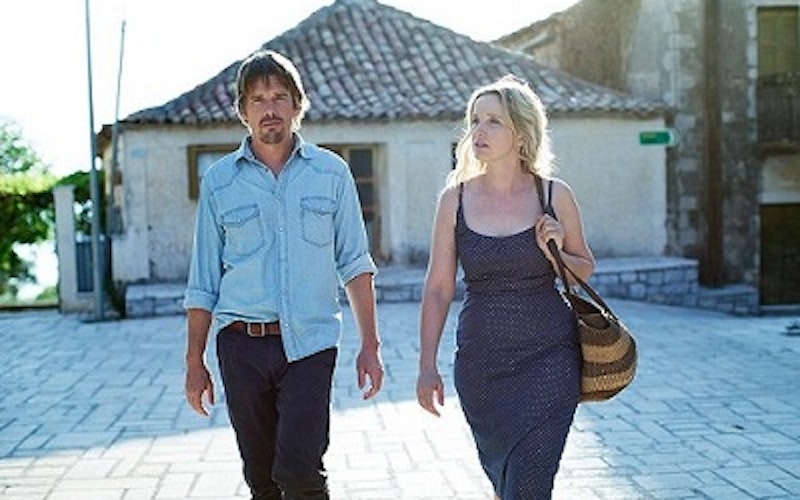
Music
Holiness or happiness? The challenge of Before Midnight
What if you arrived at middle age to find that your most cherished dream had come true? Or your worst nightmare? Or both at once, like the two main characters in Before Midnight?
This is the third in a series of films directed by Richard Linklater and featuring the characters of Celine (Julie Delpy) and Jesse (Ethan Hawke), following Before Sunrise (1995) and Before Sunset (2004). Watching Celine and Jesse over the years, viewers who are the same age as Delpy and Hawke may be especially susceptible to the way the story has unfolded; with each film they have been able to see the delights and distresses of their own current life-stage reflected and amplified in the dynamics of Celine and Jesse’s encounters. At least that’s how it has been for me.
In Before Sunrise, Jesse (an American tourist heading to Vienna to fly home the next day) and Celine (a French university student returning home to Paris) meet on a train in Austria. Their casual conversation doesn’t stay casual for long - they’re both eager to talk about the tangled messes of their interior lives. Jesse convinces Celine to get off the train with him and spend the night wandering the streets of Vienna, and all night long they wonder together about who they are, who they will become and how that becoming will happen. They long for happiness and fulfillment, and worry about making choices that will deprive them of both. As the night goes on, they also wonder what will become of their newfound friendship. At the last minute they agree to meet again in six months.
Watching Celine and Jesse over the years, viewers who are the same age as Delpy and Hawke may be especially susceptible to the way the story has unfolded.
Before Sunset opens with Jesse at a book signing in Paris nine years later. He and Celine never did meet again as planned, but he has turned his fascination with their encounter into a very successful (and evidently not very fictionalized) novel. The publicity has caught Celine’s attention, and she surprises him at the bookstore. Again they walk and talk, their time together again limited by Jesse’s imminent departure. And again that time pressure squeezes all their hope for happiness and worry about not finding it out into the space between them. By the end of the film, one thing is clear: Jesse will not be going to the airport, will not be returning to his troubled life with his wife and son; he and Celine will not continue to be who they have become apart. What’s not at all clear is who they will become together. Is this the happiness they’ve been hoping for?
Move forward another nine years to Before Midnight, now out in theaters. Jesse and Celine, who now live together in Paris with their twin daughters, are ending their summer holiday at a writers’ retreat in Greece. We see them on a more complicated stage than before, in everyday life with other people. “There’s no room for spontaneity in our lives,” Celine complains. Their friends contrive to send the two of them to a nearby resort for the night, and as they stroll through countryside and village, we are back in familiar conversational territory.
Since their first meeting, both of them have obsessively wondered who they would be in middle age, and now here they are. Is this their dream, finding happiness with that once-exotic stranger? Or their nightmare, fulfillment denied as one’s life is defined by another? They thought that by now they would have arrived, but they are still becoming, and they don’t know what to do with that.
I wonder what would happen if they were to shift their goal, to see that (in the words of Christian writer Gary Thomas) the purpose of their relationship is not to make them happy, but to make them holy. Thomas suggests that, while there is nothing wrong with the thrill of romance, there is “a deeper meaning ... in the enforced intimacy” of committed love. Celine and Jesse wouldn’t use the language of “holiness” for this deeper meaning - their view of faith has more to do with pat answers than with continual growth - but are they courageous enough to commit to a life of ongoing, never-ending becoming? Are we?
Topics: Movies, Culture At Large, Arts & Leisure, Home & Family, Marriage